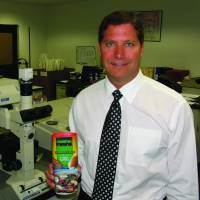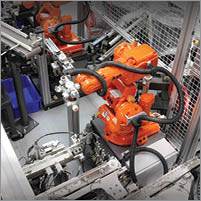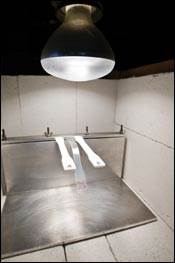Materials
SPI Starts Bioplastics Special Interest Group
Last month, the Society of the Plastics Industry (SPI), Washington, D.C., launched the Bioplastics Council to provide a forum for resin and additive suppliers, processors, and equipment makers to promote the development of bioplastics.
Read MoreInvesting in Planet-Friendly Packaging
Clear Lam Packaging Inc. is a mid-sized, family-owned packaging company with an enviable growth rate of over 20%/yr, unusual at a time when many mid-sized packaging companies are being bought out and disappearing. The secret, Clear Lam believes, has been its aggressive investment in R&D.
Read MorePrices Hit Scarey Levels
The athletes in Beijing aren’t the only ones taking record leaps this summer.
Read MoreNew Biopolymers Find Commercial Use
Two promising new biopolymers are finding some initial commercial applications.
Read MoreFeedstocks Drive Up Prices
Prices of all sorts of commodity and engineering thermoplastics and thermosets are rising by leaps and bounds, reacting to equally strong increases in feedstock costs. PE PRICES UP SHARPLYPE prices moved up 3¢/lb in May, after a 3¢ increase in April.
Read MoreComposites Embrace Mass Production
The focus this year at the international JEC Composites Show in Paris was not so much on brand-new processes as on adapting existing processes and materials for mass production, especially of large parts with critical structural demands. Attracting the most attention was wind energy, where composite material usage is growing more than 17%/yr, according to Gurit (formerly SP Systems), a Swiss-based global prepreg supplier with U.S. operations.
Read MoreEnhancing Biopolymers: Additives Are Needed for Toughness, Heat Resistance & Processability
Plastics are going “green,” but they will need some help to get there. Biodegradable polymers derived from renewable resources are attracting lots of interest and publicity, but that enthusiasm is counterbalanced by persistent questions of availability, cost, performance, and processability. All these issues are inter-related: Increasing demand will lead to more capacity, which will presumably lead to lower prices. But the foundation is market demand, which ultimately depends on whether biopolymers will have the performance properties and processability to compete with existing non-renewable plastics.
Read MoreBASF Boosts Degradable Resin Capacity
BASF AG in Germany (U.S. office in Florham, N.J.) plans to expand its capacity for Ecoflex biodegradable aliphatic copolyester from the current 30 million lb to 132 million lb/yr by the third quarter of 2010.
Read MoreFeedstocks Push Resin Prices
Despite lackluster domestic demand, relentless increases in feedstock costs are forcing suppliers to push for higher resin prices.
Read More













